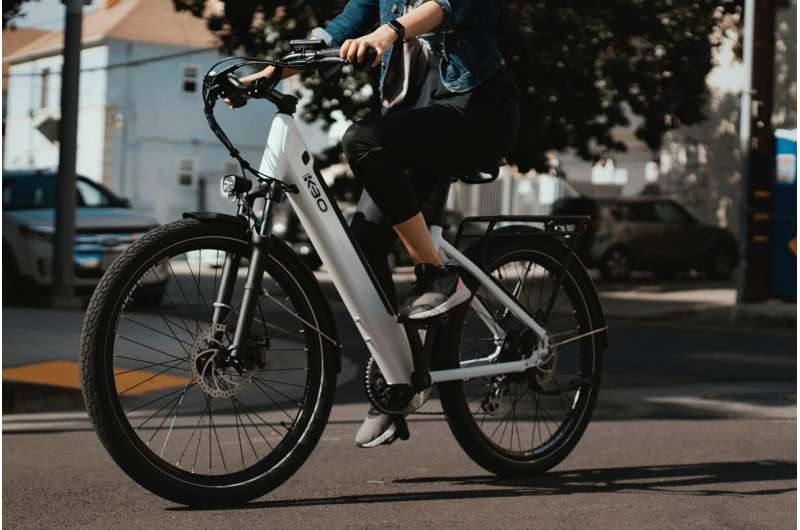

E-bikes hold huge promise for sustainable transport in rural tourist areas, says...
source link: https://techxplore.com/news/2024-02-bikes-huge-sustainable-rural-tourist.html
Go to the source link to view the article. You can view the picture content, updated content and better typesetting reading experience. If the link is broken, please click the button below to view the snapshot at that time.

February 6, 2024
E-bikes hold huge promise for sustainable transport in rural tourist areas, says researcher
by Ian Philips, The Conversation

I first rode an e-bike after a day out exploring the fells on foot a few years ago. Instead of driving back to my accommodation, I traveled 40km through the Lake District on an e-bike and I was surprised by how easy it was, even after a physically demanding day. Since then, I've been researching the potential for people to shift from cars to e-bikes and recently found that rural areas have the greatest capability to replace car travel and cut carbon emissions.
Most of the Lake District National Park's 18 million annual visitors travel by car. These cars create problems with increased greenhouse gas emissions, congestion, pollution, and accidents. High volumes of traffic also affect ecosystems and can be ugly. All these factors can affect how many people want to visit national parks.
But e-bikes could transform the way people experience rural areas like this and reduce the negative environmental effects of tourism on rural areas.
To the hills
A lot of the previous research about e-bikes as transport focuses on urban areas. With my colleagues Llinos Brown and Noel Cass, I surveyed around 500 people in the Lake District in 2020 and 2021 about their use of e-bikes. These survey respondents included residents and visitors, e-bike owners, and those who didn't use e-bikes.
We asked them about the barriers that limited their use of e-bikes or prevented them shifting trips to e-bikes from other forms of transport. We quizzed them about their desire for services and their attitudes to car restrictions in certain valleys popular with tourists.
One of the most striking findings is that people using e-bikes in the Lake District are riding them a long way in wet, hilly places. So much transport research regards hills and rain as barriers to active travel. But that's not so in this case. One person said hiring e-bikes for the first time was a revelation, even in the rain. Another family found it really easy to get up the hills, even with children tagging along behind the bikes.
The average Briton rides 54 miles per year on an ordinary bike. Many of our survey respondents were riding e-bikes more than this in a week. We found that Lake District resident e-bike owners were riding an average of 77 miles per week in the 2020 lockdown and more than 63 miles per week in spring 2021.
Our research showed that e-bikes replaced car trips more often than they replaced trips taken on ordinary bicycles or public transport. That's positive in terms of decarbonization potential and reducing environmental effects on rural ecosystems.
E-bikes are being used more for errands and leisure than commuting. Because at busy times visitors outnumber residents several times over, replacing car leisure trips with e-bike leisure trips could be important in reducing car traffic in tourist areas. Our recommendation is that planners try to think differently about hills and weather as they need not be a barrier to active travel. Doing so will improve the design of facilities that enable people to use e-bikes instead of cars to get to where they want to go.
This article is republished from The Conversation under a Creative Commons license. Read the original article.
Recommend
About Joyk
Aggregate valuable and interesting links.
Joyk means Joy of geeK